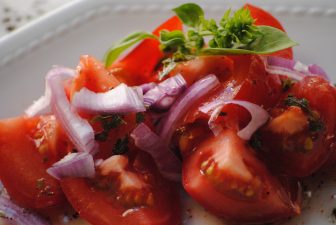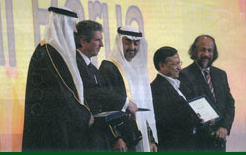 Social housing can be eco-friendly too, in Syria, Lebanon, and Tunisia [image courtesy of seir+seir]
Social housing can be eco-friendly too, in Syria, Lebanon, and Tunisia [image courtesy of seir+seir]
Syria says no to plastic bags, Lebanon is pushing for more sustainable transportation, and Tunisia makes good shakshuka. But what do these three countries have in common? They are all participating in the So’Eco program under the auspices of the Invest in Med project spearheaded by the European Commission. At the end of the program, in March 2011, Syria, Lebanon, and Tunisia will each have a host of newly-minted eco-builders who will apply their knowledge to social housing. 
The So’ Eco project has 3 main objectives. First, until the end of July this year, they will send French, Belgian, and Spanish experts in ecologically-sound building techniques to analyze the existing state of building techniques in Syria, Lebanon, and Tunisia.
Then they will establish each country’s specific priorities, and map a suitable development path according to those identified needs. In October, training programs will be initiated, aimed at sharing valuable technical and technological skills. It is expected that the recipients of said training will then pay it forward in their own countries.
And then in March next year, representatives from all of the countries will gather in Marseilles to “consolidate” the efforts heretofore conducted. This gathering will also further enmesh relationships established and foster future collaboration in order to maintain the momentum of eco-building. [image courtesy of u-g-g-b-o-y]
So’Eco was established specifically “to enable [Mediterranean people] to reach a successful local development by giving people an access to a high quality, affordable, and low energy consuming housing,” and targets local authorities, eco-construction companies, social housing projects, town-planning offices, universities, and technical centers.
 [image courtesy of http2007]
[image courtesy of http2007]
It is also a part of a larger 3-year project funded by the European Commission and conducted by MedAlliance to steer the region’s growth in a healthy, constructive manner. A consortium of business, investment, and government organizations have joined to focus on investment and business partnerships in 9 Mediterranean countries: Algeria, Palestinian Authority, Egypt, Israel, Jordan, Lebanon, Morocco, Syria, and Tunisia.
The Mediterranean evokes images of crystal clear waters and beautiful babes – male and female – strutting their stuff on the beach. To spare these images, and keep life tolerable for the people who call the Mediterranean home, careful and responsible planning must inform all future building projects. So’Eco’s expert guidance is golden.
More Building news from the Middle East:
Mr. Robert Upton’s Philosophy of Planning and How It Applies to the Middle East
Planning the Sustainable City: Lessons from Bogota, Colombia
Welcome Home: Meet Theo Who’s Running Jordan’s Alternative Eco Aqaba House



